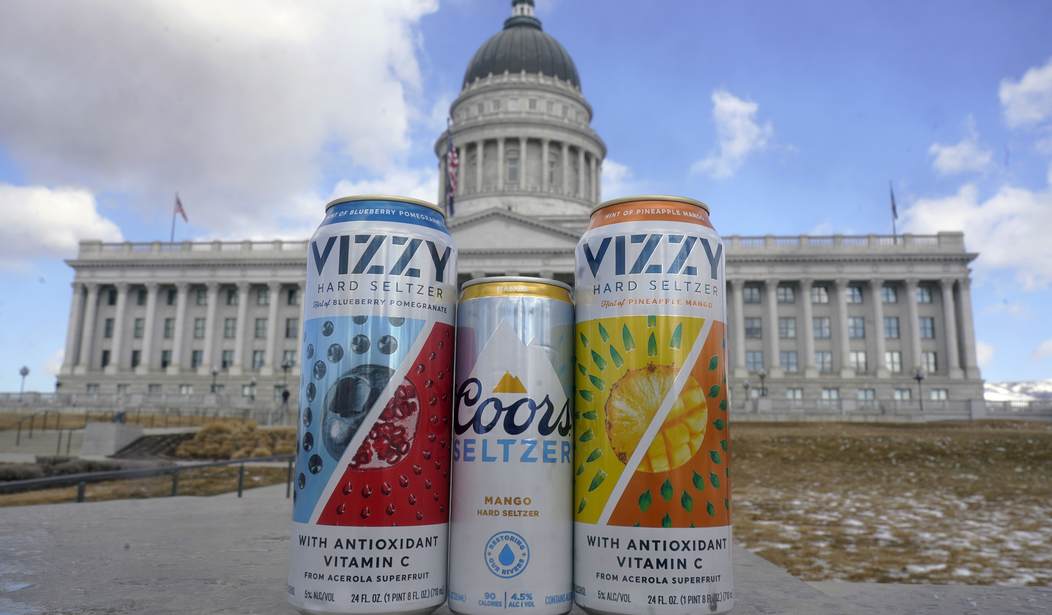It isn’t exactly a closely guarded secret that I am a fan of alcoholic beverages. Because I live a truly blessed life, I have many relatives and friends (you’re no doubt aware of VodkaPundit and Kevin Downey Jr.) who are big fans as well.
I also spent a good portion of my adult life doing stand-up in nightclubs, so I’m rather familiar with what’s out there in the way of big people stuff to drink.
That’s why I was quite surprised several years ago when I saw my first White Claw. I had no idea what a hard seltzer was and neither did any of my friends. It seemed to have appeared out of nowhere. Now it feels like everyone is making hard seltzers (make sure you watch the video at the end of this column). The pandemic lockdowns really seem to have sparked a wave of new hard seltzers to keep people from destroying their livers too quickly.
The explosion in popularity could be attributed to changing tastes — which surely has something to do with it — but the way your favorite hard seltzer is taxed may have more to do with it.
Canned cocktails, also known as ready-to-drink (RTD) cocktails, are available at retailers alongside other popular beverages likes alcoholic seltzers. Yet, even though they contain roughly the same alcohol by volume as popular seltzers like White Claw, RTD cocktails are assessed a much higher excise tax due to the fact that the alcohol is derived from spirits and not fermented sugar as is the case with White Claw and Truly, which are assessed a lower excise tax rate. Seltzers made from fermented sugar have a tax advantage over canned cocktails at the federal as well as state level.
“Because White Claw is brewed like beer, it’s taxed like beer, which is important because beer is taxed in the U.S. at a much lower rate than spirits,” noted a 2019 New York Magazine article titled ‘How Tax Policy Gave Us White Claw.’ “If you made a product similar to White Claw by mixing vodka with seltzer and putting it in a can, a six-pack would be subject to almost $2 in additional taxes when sold in New York City.”
When was the last time that tax law ever helped out?
The first generation of hard seltzers had relatively low alcohol by volume percentages. There was also a stigma attached to them for men, even though every God-fearing drinking man I know has enjoyed one or two. Hard seltzer is a favorite among the keto crowd because of the low net carbs, which is how most of us first tried it.
Perhaps because of that stigma, several popular brands began rolling out new versions that had an 8% ABV or higher. They taste as light as the stuff with half the alcohol, which can be dangerous.
Back to the taxes. Now that hard seltzers are so popular, how long will it be before the highway robbers in government decide to change how they’re taxed?
I think we all know the answer to that one.
So, if you’re a big fan of the hard and bubbly (or a closeted male imbiber) it’s probably time to drink up and stock up.
Here’s the video. Trust me, it’s hilarious.
a










Join the conversation as a VIP Member